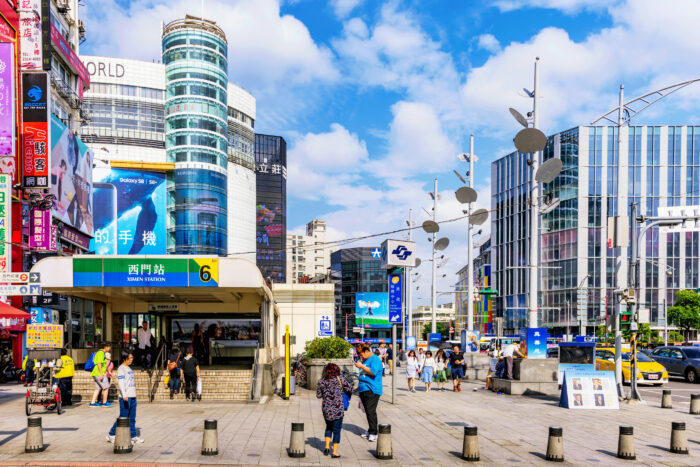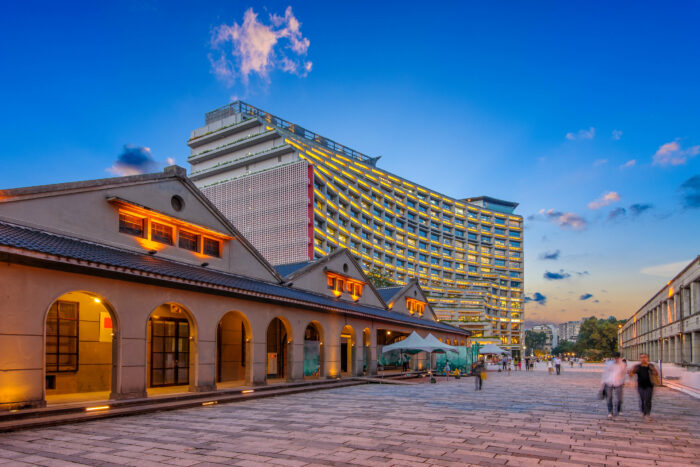Taiwan likely to set minimum wage on October 8

The date for deciding on the minimum wage for next year has been postponed to October 8 as announced by the Ministry of Labour (MOL).
Calls for Taiwan to amend labour law to increase birth rate

The Childcare Policy Alliance (CPA) has urged the government to reform labour laws to boost the birth rate and retain married women in the workforce.
Union in Taiwan wants subsidised childcare leave for parents

Current guidelines states that a class should stop in-person activities if one student tests positive for the COVID-19 virus.
Leader of business groups opposes raising minimum wage in Taiwan

Taiwan’s Chinese National Association of Industry and Commerce (CNAIC) has asked for the minimum wage for 2022 not to be raised.
No proof of vaccination during recruitment in Taiwan

The Workforce Development Agency (WDA) has stated that employers are not allowed to ask potential hires for proof of COVID vaccination.
Aid for businesses take precedent over minimum wage: Taiwan minister

Taiwan is deliberating on the minimum wage for 2022, even as some businesses continue to struggle financially because of the pandemic.
Taiwan’s labour minister hopeful for larger minimum wage hike next year

The hike is required to support sectors badly impacted by the pandemic, including hotel, F&B and assorted services.
Income gap widens in Taiwan due to pandemic

Income inequality in 2020 was the highest in eight years, with the top 20% of households earning 6.13 times that of the bottom 20%.
Taiwan sees low labour participation rate from older workers

Among Taiwan’s middle-aged and older populations, some 5.74 million people were unemployed last year, citing reasons such as their age.
Taiwan extends subsidy for workers with pay cut

From August 23, workers whose income fell by at least 20% during July would be able to apply for the subsidy.
Taiwan sees fall in furloughed workers in first week of August

This was largely due to the improvement in employment in the F&B, wholesale and retail sectors, based on official data.
Employers should not use government relief funds for workers’ pay

Taiwan’s New Power Party (NPP) has raised the issue of employers using pandemic relief funds to pay their staff’s salaries.
Taiwan’s self-employed to benefit from government subsidies

Self-employed workers who earned less than NT$408,000 in 2020, and who have been impacted by the pandemic, will be eligible for subsidies.
Taiwan offer subsidies to the unemployed who find jobs

Workers will now be eligible for handouts of up to NT$20,000 in subsidies over four months if they find a new full-time job.
Taiwan to approve 1 million pandemic relief loans

More than double the expected 500,000 people had applied for COVID-19 relief loans from the Ministry of Labour (MOL).
Taiwan firms want tax breaks, COVID-19 vaccines and wage subsidies

72.59% of manufacturers want a business tax break, while 71.25% would like to receive wage subsidies to help them meet their payroll costs, a survey finds.
Taiwan shortens rest times between shifts for workers

The Ministry of Labour (MOL) has temporarily lowered the number of rest hours workers must get between shifts from 11 to eight for four industries.
Taiwan to issue fourth round of COVID-19 relief subsidies

The subsidy package is set to benefit at least 7.3 million individuals, and will also be allocated to support various sectors.
Taiwan grants pandemic subsidies to 600,000 self-employed

The Cabinet is revising an economic stimulus bill to provide financial relief to two groups of self-employed people affected by the pandemic.
Taiwan approves up to US$30.4 billion for pandemic relief

Taiwan’s legislature has passed a financial relief proposal that will see NT$840 billion set aside for direct payments and loans to citizens and businesses.
Taiwan plans NT$25 billion subsidy for families

On Monday, it approved an additional NT$420 billion in stimulus spending to support the economy as business activities are curbed.
Taiwan plans to double stimulus funding for COVID-19 support

Selected workers and the self-employed in Taiwan can expect to receive subsidies ranging from US$361 to US$1,083.
Taiwan legislators propose pandemic leave subsidies for parents

The proposal would allow workers who have to take unpaid leave to take care of their children to apply for the subsidies.
More financial firms in Taiwan move to remote working

The move to remote work comes as an increasingly number of COVID-19 infections are reported in Taiwan.
Taiwan passes amendment to foreign talent recruitment bill

The Legislative Yuan has approved an amendment to an act that will lower requirements for foreign white-collar professionals seeking work in Taiwan.
Vaccinated employees get 2 days off work in Taiwan

Workers who receive the COVID-19 vaccine will be entitled to two days off work, according to the Central Epidemic Command Center (CECC).
Taiwan mandates occupational accident insurance for all workers

Employers are required to sign their staff up for the insurance on their first day at work, regardless of company size, or face a fine of up to NT$100,000.
Taiwan cabinet approves measures to attract foreign talent

The amendment to the law would also allow foreign professionals to enjoy greater tax concessions, from the current three years to five years.
Taiwan employees get highest-ever year-end bonus

Despite the economic fallout from the pandemic, employees received the highest-ever average year-end bonus of NT$70,513 (US$2,478) last year.
Taiwan urges for laws to grant unpaid leave days for vaccination

The MOL has asked the Central Epidemic Command Center (CECC) to enact new laws allowing employees to take unpaid leave for vaccination.
